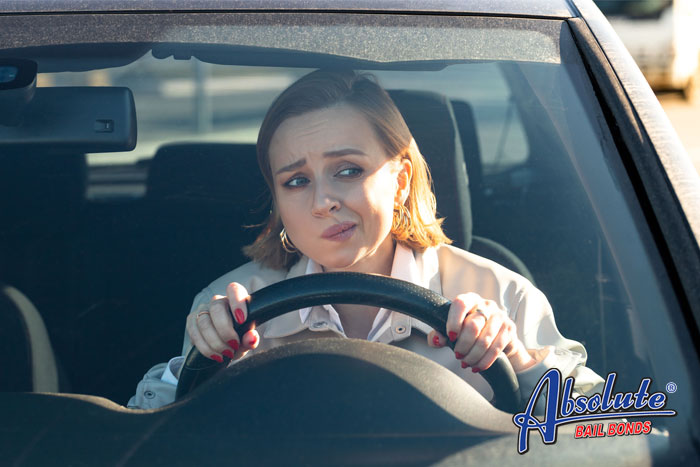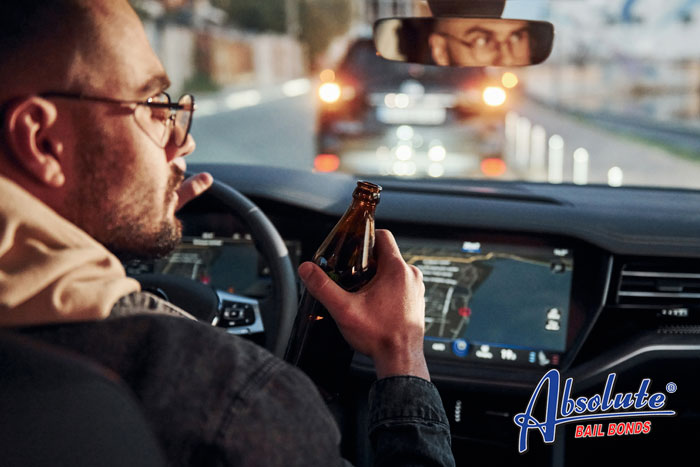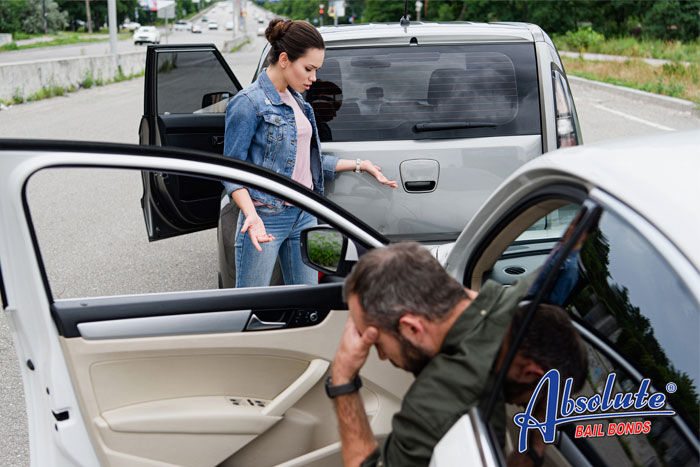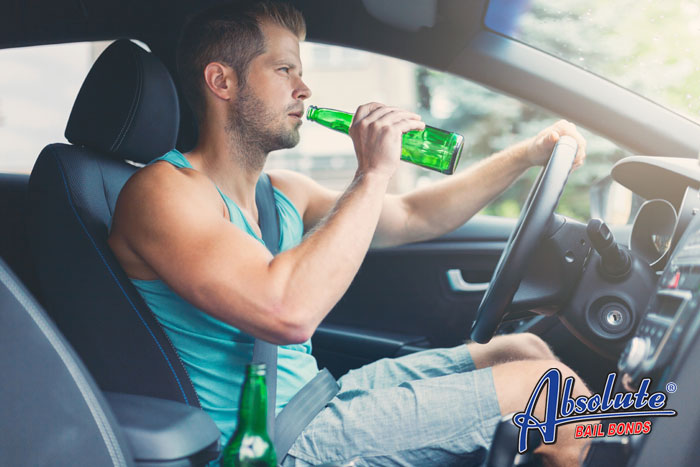
Can You Get Into Trouble for Using a Computer That Doesn’t Belong to You?
We’ve all done it from time to time. Grabbed a friend or family member’s laptop to check our email or update our social media accounts. Most of us ask for permission first. But what if you don’t ask for permission? What happens if you simply boot up someone else’s computer and start using it.
While each situation is different, in legal terms, if you use someone’s computer without getting their permission first, you can be charged with a crime. You’d be charged with violating Penal Code 502 PC. This law states that:
“It is the intent of the Legislature in enacting this section to expand the degree of protection afforded to individuals, businesses, and governmental agencies from tampering, interference, damage, and unauthorized access to lawfully created computer data and computer systems. The Legislature finds and declares that the proliferation of computer technology has resulted in a concomitant proliferation of computer crime and other forms of unauthorized access to computers, computer systems, and computer data.
The Legislature further finds and declares that protection of the integrity of all types and forms of lawfully created computers, computer systems, and computer data is vital to the protection of the privacy of individuals as well as to the well-being of financial institutions, business concerns, governmental agencies, and others within this state that lawfully utilize those computers, computer systems, and data.”
This means that not only are you not allowed to boot up another person’s computer without their permission, you’re also not allowed to use their computer network or any of their software. You should also be aware that in most situations using another person’s cell phone without their permission would also be covered by the same law.
Most of California’s unauthorized use of a computer cases involve additional charges which frequently include fraud, identity theft, and trespassing.
At this point, unauthorized computer access is one of California’s wobbler laws. The exact circumstances of the situation determine if you face misdemeanor or felony charges.
If you are convicted of misdemeanor unauthorized computer use, the maximum sentence is twelve months in county jail and a fine that doesn’t exceed $5,000. Felony convictions can include a three-year stint in state prison and as much as $10,000. Probation is an option in both felony and misdemeanor cases.
While there are defenses you can use in an unauthorized use of a computer case, putting one together isn’t easy. In order to win, you’ll have to prove that you were actually given permission or that you didn’t realize it wasn’t your computer or cell phone.
The best way to avoid an unauthorized use of computer charge is trying to use your own electronics’ as much as possible.

Failing to Properly Register Your Vehicle
To legally operate a car in the State of California, you need a few things. You need a valid driver’s license, you need to have the car properly insured, and the vehicle’s state registration needs to be complete. Both the insurance and registration can be expensive, especially when money is already tight. While most motorists try to scrape up enough to cover their insurance premium, many will look for creative ways to avoid the registration fee.
If you’re looking at the current cost of registering your vehicle and trying to figure out if the expense is worthwhile, you should know that if you don’t, you could face misdemeanor charges.
The issue of fake vehicle registration is addressed in California’s Vehicle Code 4462.5 VC.
If you’re pulled over and your vehicle’s registration is out-of-date, you’ll likely get a ticket for the infraction. You’ll also be ticketed for anything else you’ve done wrong, which could include speeding, failing to yield for a stop sign, or driving without insurance. The officer also has the option to have your vehicle towed to the police impound lot. If the vehicle is towed, you’ll have to pay the towing fees and the impound fee before you can get it back. Most police impound lots charge a daily fee for each day that your car is there.
While all of those fees hurt, your bank balance isn’t done taking a hit. The DMV will also add additional late fees to your total when you do get your car registered, something you’ll likely have to do before the police will release it from impound.
If you try to hide the fact that your vehicle isn’t properly registered by doing things like:
- Putting a different plate on the vehicle
- Presenting a fake registration to the police officer
The situation becomes much worse. Not only will the police tow your vehicle, but you’ll also be charged with false vehicle registration which is a misdemeanor. If you’re convicted you could be sentenced to six months in jail and issued a $1,000 fine. The judge does have the option of using misdemeanor probation instead of jail time for your sentence.
When all is said and done, it’s in your best interest to hitch a ride with friends until you can get your car properly registered.

What is Felony Stalking
While everyone knows that stalking is a crime, few realize that it can be a felony or a misdemeanor and in some cases, the accused might be charged with both a felony and a misdemeanor.
Every single state has stalking laws. While the nuances of stalking laws vary from one state to another, for the most part, each state has the same description of what can be considered stalking. As a rule, any behavior that can be considered prolonged harassment, an obvious attempt to frighten someone, the unwanted monitoring of a person, using proximity to threaten a person, or actions that lead to emotional distress is covered by stalking laws.
Anyone who engages in the following types of behavior will likely be charged and convicted of stalking in California:
- Going out of your way to follow a person
- Frequently showing up at locations where you know a specific person will be
- Using GPS to monitor a person’s movements
- Constantly filming/photographing someone without their permission
- Obsessively monitoring someone’s social media accounts, phone calls/texts, reading their emails, and studying their computer activities
- Going out of your way to gather as much information as you can about a specific person
- Leveling threats against a person or their loved ones (including pets) if they don’t spend time with you
- Instigating property damage
- Sending gifts and other forms of communication after you’ve been told to stop doing so
While it’s true that it can sometimes be difficult to determine when stalking crosses the line from a misdemeanor and becomes a felony, the general rule of thumb is that anything that seems more intense than simple harassment will likely be considered a case of felony stalking.
The exact punishment a person receives following a stalking conviction in California often varies from one case to the next. When handing down a sentence, the judge looks at a variety of factors, including:
- Your criminal history
- The type/intensity of the stalking episodes
- If the victim had a POP order that you ignored
- If anyone was hurt because of your actions
The sentence for a misdemeanor conviction can include spending a maximum of one year in county jail and being required to pay a fine that doesn’t exceed $1,000. In most cases, you’ll also be told that you’re legally required to stay away from your victim and that you’re also not allowed to contact them.
The sentence for a felony stalking conviction in California can include spending three years in state prison. If you have prior stalking convictions on your record, you could be sentenced to five years in prison.

Most Common Crimes in California
The most common crimes in California vary from one county to the next. The stats can also change a great deal. Still, there are some crimes that are more prevalent than others.
Drug Related Crimes
One of the interesting things about drug-related crimes in California is that the legalization of marijuana has reduced the number of drug-related arrests each year. It’s estimated that now that marijuana is legal law enforcement agencies have an additional $200 million that is used to deal with other types of crime.
While legalizing marijuana has reduced the number of drug-related crimes the state deals with annually, drugs still take the biggest toll on California’s legal system.
Violent Crimes
The violent crime rate in California fluctuates. It increased in 2012 and decreased by 2.9% between 2018 and 2019. According to data collected in 2019, 60% of the violent crime arrests were aggravated assault only 1% involved homicides.
DUIs
Despite all the warnings about combining alcohol and driving, DUIs still represent a major crime problem in California. The good news is that people seem to be getting better about not drinking and driving. In 2008, there were 208,845 DUI arrests in the state. In 2013 there were only 155,599 reported DUI arrests.
Weapons Charges
Weapons charges represent a large chunk of California’s crime problem, though there is a wide assortment of charges which range from quite minor to extremely serious. Given the complexity of California’s laws regarding weapons, if you plan on carrying anything that could be considered a weapon it’s in your best interest to spend a great deal of time reading through all of the laws that pertain to that specific weapon. Don’t forget that weapon laws can change from one county to the next.
Property Crimes
A surprising number of property crimes take place each year in California. The good news is that they appear to be decreasing. Two major California cities, Ventura and Fresno reported an impressive 10% decrease in property crimes in 2019.
It will be interesting to see how crime rates change in a post-Covid-19 world.

Domestic Violence in California
Domestic violence is a complex crime so it shouldn’t come as surprise to learn that the laws dealing with domestic violence are equally complicated.
The first step in unraveling this complex system is knowing exactly what domestic violence is. California defines domestic violence as actions that either harm or threaten to harm an intimate partner.
It’s important to understand that there are sub-categories of domestic violence which include:
- Domestic battery (actual physical abuse)
- Domestic assault (the use of words or actions to threaten physical abuse)
It’s not unusual for domestic violence cases to involve both domestic battery and domestic assault.
California law is written in such a way that only a limited number of people can file domestic violence charges. At this point, domestic violence charges can only be filed by:
- Spouses
- Registered domestic partners
- Live-in lovers (also considered a cohabitant)
- Someone who shares a child with the accused
- Fiancées
- Someone who has been in a steady romantic relationship with the accused.
California law states that both current and former domestic partners can file domestic violence charges.
Many people are surprised to learn that domestic violence is one of California’s wobbler crimes. That means it can be charged as either a misdemeanor or felony. When the prosecutor is looking at the case, they consider many variables when deciding if they want to pursue misdemeanor or felony charges.
Considerations include:
- Circumstances surrounding the incident
- How badly the victim was injured
- The accused’s criminal past
- The couple’s history (have there been numerous reports of domestic violence)
If convicted of misdemeanor domestic assault, the accused could spend the next year in county jail. If convicted of felony domestic assault, they could be sentenced to four years in state prison.
The punishment for misdemeanor domestic battery includes a year in county jail and a $2,000 fine.

Documenting a Car Accident
If you haven’t been in a car accident yet, you should consider yourself lucky. Considering how much time we spend behind the wheel, the odds are good that sooner or later you’ll be involved in one. Because of the likelihood of getting into a car accident, it’s important to know what the proper protocol is during an accident.
The first thing you need to do is make sure neither you nor anyone else is hurt. If there are injuries, call for medical help and do as much first aid as possible. During this, you should also contact the police.
When there are injuries, dealing with those should always be your first priority. Let the police handle writing up the details of the accident.
If there aren’t any injuries, you should still call the police, but while you’re waiting for them to arrive on the scene, take some time to create your own documentation of the accident. Thanks to the installed camera inside your smartphone this is easier than ever. All you have to do is whip it out and start snapping photos.
Having clear accident scene photos is extremely important. Unlike a police report that can be dismissed by a judge as hearsay, the photos you snap at the accident can be used during a civil trial. Your insurance company might even use them as they try to determine how the accident happened and who is at fault. The photos also help provide proof of who actually witnessed the accident.
When you’re snapping photos, you’ll want to take pictures of both vehicles, anyone who is standing nearby, and the local landscape. Make sure you include shots of road signs, objects that could have helped cause the accidents, intersections, and traffic lights.
As soon as you can, sit down and write your own account of what happened in the moments leading up to the car accident. You should do this even if you believe the accident was your fault. Once you’ve completed writing your own report, save it and the photos you snapped somewhere safe. It’s really in your best interest to store copies in multiple places, such as one set in a cloud storage unit, a few more saved to various email locations, and maybe a hard copy in your filing cabinet.
You need to keep the photos and your account of the accident for a full two years. After two years, California’s statute of limitations for car accidents kicks in and you’ll no longer have to worry about a civil lawsuit.

Understanding Battery in California
Assault charges can be confusing, mostly because the law has so many nuances and different stages of things. The simplest way to look at things is to understand that any assault and battery charge involves someone getting into an altercation with another person.
California’s Penal Code sections 240 and 242 deals with assault and battery. The law defines battery \ and battery as, “any willful and unlawful use of force or violence upon the person of another.”
Don’t assume that simply because the person that you allegedly assaulted wasn’t hurt that the charges will simply go away. The way the law is written, simply grabbing another person’s shirt without their consent can be grounds to file assault and battery charges against you.
Even though assault and battery charges often seem like the same thing. In California, you could potentially be charged with just assault or just battery. The reason for this is because California lawmakers consider assault as an attempt to use physical force to threaten/harm whereas battery happens when you carry through with the threat and genuinely harm the other person.
If convicted of misdemeanor battery, the maximum sentence you’d receive is misdemeanor probation, up to six months in jail, and a $1,000 fine.
If the battery case involves a police officer, a guilty conviction could result in twice as severe consequences.

Laws Every Californian Should Know About
If you call California home, there are a few laws you should familiarize yourself with.
DUI Threshold Laws
Everyone knows that getting arrested for DUI is a serious, life-altering problem. The problem is that few people know what when they have crossed over the threshold from legally able to drive and become too drunk to drive.
It doesn’t matter if you are the kind of person who gets buzzed after a few sips or someone who really can hold their liquor, if you’re pulled over and your blood alcohol level is 0.08% or higher you will be charged with a DUI.
Data Privacy Laws in California
One of the great things about calling California home is knowing that you have a legal right to know exactly what type of data businesses collect about you and what they’re using it for. The California Consumer Privacy Act went into effect on January 1, 2020.
The California Consumer Privacy Act is written in such a way that you:
- Can delete personal data a business has collected
- Block the sale of personal data
- Have the ability to learn exactly what data is collected/sold/shared/etc.
Comparative Negligence for Injuries
Don’t assume that just because you believe that someone is 99% for injuries they sustained during an accident, that they’ll be responsible for the bulk of their medical bills. That’s not quite how the law sees things in California.
California lawmakers created a comparative fault law that basically states that if you are in any way responsible for a person’s injuries, they (or their insurance company) can sue you for a portion of the expenses the individual incurred because of the accident. The good news is that once the court decides how much your actions contributed to the accident, that will be the amount you have to owe.
For example, if a guest comes to your home while they are drunk and trips over a hose that you left stretched across the driveway and breaks their nose, the court might decide that the hose was only 20% of the reason they were injured. The other 80% of the injuries were connected to their intoxication. In this situation, you’d only be responsible for 20% of the medical bills.
Cell Phones and Cars
As a society, we’ve become addicted to our cell phones. They rarely leave our sight. We love how they provide us with a way to constantly be connected to everyone we care about. While no one has taken steps to separate us from our phones, California lawmakers have passed laws that are designed to keep you off your phone while you’re behind the wheel.
If you’re under 18 and driving, you’re not allowed to use your cell phone at all while commuting. Even the hands-free system is off-limits. If you do have to make a call or respond to a text, you’ll have to pull over and deal with the situation while your car is completely stopped.
If you’re over 18, you’re allowed to use the hands-free system of your choice, but you can’t have your phone in your hand. The first time you’re caught holding the phone while driving, you’ll be issued a ticket that will cost at least $76.
The one exception to using a handheld phone while driving is if you’re reporting an emergency to the police or fire department.

You’ve Been Arrested for DUI… Again
Getting arrested and charged for DUI once in California is terrifying and life-altering. The second time you’re arrested for the same thing is even worse.
Like many states, California lawmakers have decided that to take a hard stance on drunk drivers. One of the ways they’ve done this is by creating laws that make a second (and each additional offense) significantly worse than the first. The reason for this is because while a single DUI could be the result of a bad judgment and an honest mistake, additional arrests indicate that you have a habit of driving while under the influence and a menace to society.
DUIs are addressed in California Vehicle Code Section 23152. The second time you’re convicted of a DUI in California, the result will include losing your ability to drive, fines, mandatory enrollment in substance abuse programs, and jail time.
When you’re convicted of a second DUI in California, you will be required to spend at least 96 hours in the county jail. That’s the minimum amount of jail time connected to a second DUI. The maximum amount of time you can serve is 12 months.
You should expect to pay a higher fine than you did for the first offense. Typically, the fine for a second DUI is between $390 and $1,000, but that might not be all you’ll have to pay. Most courts add penalty assessments to the DUI fine. These assessments can multiply the fine to five times the anticipated amount. In some situations, the judge will allow you to choose to extend the amount of time you serve in jail or do a great deal of community service in exchange for paying the fine.
Since January 1, 2019, a guilty conviction of a second DUI in California requires that the judge order an ignition interlock device be attached to your vehicle. This only happens if the two convictions are less than 10 years apart.
The second DUI means you’ll lose your driving privileges. The good news is that the loss of your license probably won’t be permanent. In California, the current license suspension for a second DUI is a 1-year suspension (administrative per se) or a 2-year suspension if you are convicted.
It’s worth noting that in some situations, the judge will grant you a restricted license. This doesn’t mean you’ll be allowed to drive wherever you want. By if you’re able to present a compelling case to the judge, they’ll allow you to drive to work and to manage things like transporting your children. If you’re caught driving to places that aren’t specified in the paperwork connected to your suspended license or you’re driving at a time when you’re not supposed to, the restricted driving privileges will be taken away.
The only way you’ll be granted a restricted license is if you didn’t refuse to take a blood or urine test when you were originally arrested for the second DUI.
In addition to dealing with the actual criminal consequences of a second DUI, if you damaged property or injured/killed someone while driving drunk, it’s likely you’ll also find yourself engaged in a civil case as well.
The best way to avoid all of these consequences is making sure you never get behind the wheel after you’ve been drinking or using drugs.

Oops, I Opened my Neighbor’s Mail!!
The postal service isn’t infallible. They’re prone to making human mistakes. One of the most common mistakes the postal service does is occasionally putting your neighbor’s mail in your mailbox.
Most of us don’t really look at the mail before we open it. Since it’s in our mailbox, we automatically assume it’s for us. As a result, occasionally we open a piece of mail that belongs to our neighbor.
This can instantly lead to a sense of panic because most of us know that opening other people’s mail is a federal offense.
If you’ve accidentally opened a piece of mail that isn’t yours, the first thing you need to do is take a deep breath and relax. Unfortunately, these things happen.
The best way to deal with the situation is to return the mail to the envelope, seal it with a piece of tape, and let your neighbor know what happened. If you don’t see your neighbor, either slide the mail under their front door with a note of explanation or return the mail to the post office.
You want to take a proactive stance on the situation. The quicker you are to admit to the mistake, the less likely your neighbor will be to press charges.
If you got as far as reading whatever was sent to your neighbor, you don’t want to discuss the contents with anyone. Not with your neighbor (unless they bring it up,) not your spouse, and not your friends. Talking about the mail you accidentally opened could be considered an invasion of privacy and may cause your neighbor to consider filing charges against you.
The issue of mail theft is dealt covered by PC 530.5(E). In California, opening someone’s mail is a misdemeanor offense. A guilty conviction could result in being sentenced to a single year in jail. The good news is that to secure a conviction, the prosecution has to prove that you knowingly accepted the mail (or took it out of someone’s mailbox) and opened it. That’s why it’s so important to admit what you’ve done and alert both the post office and the actual owner of the mail to the situation.

